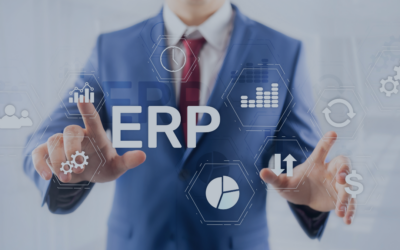Every business has its unique qualities and with those, unique needs. This is the reason why choosing a CRM System can be complicated. It represents a large investment and effort to implement, and you want to make sure there will be a quick ROI after making the decision. It’s easy to compare one software from another by putting features and functionalities side-by-side, but these might not tell you everything you need to know to get the most value out of your CRM. Comparing one product to another is not enough to find the right CRM system that fits your business. The first thing you’ll want to look at is your own company and its customers.
The “C” is for Customer
Customer Relationship Management software says it in the very name: it’s about managing your relationship with your very own customers. The best place to start finding out what you need from your CRM system is to find out what your customers need and expect from your organization. It’s important to study your customers’ preferences and buying tendencies and segment your customer base by demographics to understand the big picture. Survey your clientele if necessary; this can reveal a lot about their preferences and help you pinpoint the features you need from your CRM to meet customer expectations. It’s also of utmost importance to have clearly defined customer policies and procedures. Your CRM system will help you execute tasks, but without a clear policy and procedure in place, you won’t be able to identify which tools you need from your CRM to execute those tasks. For example, a retail business will want to make sure what their return and replacement policies and procedures are to get the correct inventory functionalities from their CRM system.
Strategy and Goals
Before taking a leap of faith and making a large investment on CRM system that promises to fix it all, it’s important to understand your businesses goals and how you expect a CRM to help you reach them. Are you looking to build customer loyalty by improving your level of service? Are you trying to boost your sales through automation? This also means you’ll want involvement from the CRM’s eventual end-users. Understanding each department’s objectives and how they operate at a data management level is key to defining necessary tools and functions from the CRM. With clearly defined business goals supporting your CRM system choice, you’ll see which features are indispensable and you’ll be able to measure success-rate and ROI effectively in the future.
Pricing, Scalability, and Service Models
When your homework has been done to understand your customers and define your business goals and strategies, it’s time to start shopping around. The most important factors you’ll want to weigh are how the CRM is priced, its scalability, and if it’s an on-premise solution SaaS (Service as a Solution), or a hybrid. SMB’s may have much more to gain from a cloud-based solution rather than a complex on-premise infrastructure while a large enterprise will want more control over their CRM system and prefer to manage hardware themselves. A CRM that offers scalability is important to make sure your company has room for growth and expansion; you may start with a basic CRM package and then expand to ERP capabilities, for example.
Finally, pricing is a big deal-breaker. It’s overstated that you won’t want to go for the cheapest option you find, but there’s a big difference between pricing models based on usage and those that are per-user. Depending on the size of your business and the amount of features you need, a pricing model based on usage may be the right choice. This way, an SMB can avoid paying extra for features and functionalities that they don’t need and can balance the cost-effectiveness of their CRM.
You can find out more about CRM and ERP solutions by visiting our website. You can also follow us on Twitter and LinkedIn for news and information on cloud solutions!



